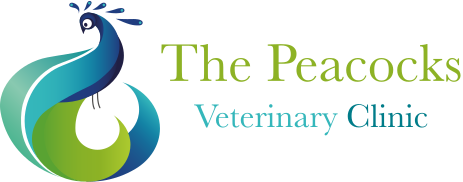Can my pet eat this?
Independent
Friendly
Dedicated
Clinical Excellence
Cost-effective care
Watching what we eat is not just something that humans should do. Good nutrition, together with regular exercise, are as important to our furry friends as they are for us.
It is all too easy to fall into bad habits – giving your pets leftovers, peelings or titbits from the table, for example. Owners love to treat their pets, but deciding to feed them food which is considered a luxury to us, can cause them significant harm. Even those who feed their pets with pet-specific food, steering away from human varieties, can still be harming their furry friends by over or under-feeding them.
When you next visit the practice, please talk to us about the most appropriate way to feed your particular pet. Choosing the right food, in the right quantity and feeding it at a suitable time and schedule can significantly help their immune and digestive systems; oral health; longevity and overall fitness levels.
The right food
When choosing food for your pet, it is important to consider their age, size and breed, as well as their health and general condition. Vets can advise, especially if your pet has to take ongoing medication.
Nutritional guidelines differ at different stages of life, and food created and prepared for your specific pet will have been researched to match the needs of the animal. Feeding an optimal diet for your pet can make a huge difference to their quality of life, and even their life expectancy.
The right amount
Every manufacturer will differ slightly with the ingredients and nutrition which they include, and therefore it is important to stick to their recommended dosage levels, as too much, or too little, can impact the efficiency of the food in maintaining muscle mass; oral and gut health etc. As a general rule, provide the suggested amount for your pet’s ideal weight (as opposed to their actual weight if they are overweight, for example).
Obesity in pets, in addition to general discomfort, can cause a variety of medical issues such as arthritis; heart and breathing problems; diabetes; liver disease; urinary tract disorders and increased risks during anaesthesia.
The amount of exercise your furry friend gets will impact the amount of food that they require. As with humans, there is a balance to be set to ensure a consistent, healthy weight is maintained.
Potential problems with the ‘wrong’ food
There are a number of foodstuffs which humans eat that can cause extreme issues if eaten by your pet. This is not an exhaustive list, but pets shouldn’t eat the following:
Avocado – this contains persin, a fungicidal toxin, which is extremely toxic to dogs
Grapes/raisins – these can cause kidney failure
Chocolate and coffee – caffeine is not good for animals. Whilst there are some ‘dog-friendly’ chocolate alternatives, the real thing should be avoided.
Macadamia nuts – these can cause muscle weakness, swollen limbs and vomiting. Nuts in general are to be avoided in pets as they can cause a choking hazard. As with humans, pets can also have severe allergies to nuts.
Onions/garlic/chives – potentially leading to anaemia, all members of the onion family can cause gastrointestinal irritation and stomach pain.
Xylitol – an artificial sweetener found in many human foods, including chewing gum; low-fat and low-sugar foods; baked goods and even some peanut butter. Xylitol can lead to liver failure and even death.
Cinnamon – can cause animals to choke and struggle to breathe if inhaled as a powder and if too much is consumed, it can irritate their mouths and digestive systems.
Alcohol – as with humans, animals can get drunk, but alcohol can also lead to ethanol poisoning, comas or central nervous system damage. Be aware that alcohol is contained in non-food products, too, such as mouthwash.
Cooked bones – whilst raw bones are a great treat for dogs, once they are cooked, bones can splinter. These splinters can cause gastrointestinal irritation or constipation, but, at worst, can cause a fatal perforation of the gut.
Raw bread dough – similarly, cooked bread, whilst not recommended is generally tolerated, however, the yeast in raw dough will continue to expand in your pet’s stomach. This can lead to problems such as Gastric Dilation Volvulus (GDV) which can be fatal.
Milk and dairy products – strangely, most cats are lactose intolerant. This therefore means that giving milk to cats can cause gastrointestinal issues. Rabbits, too, shouldn’t eat dairy products as they can lead to tooth decay and weight gain.
If you have seen your pet eating anything which could potentially be harmful to them, contact us for advice. Don’t wait for symptoms to present themselves.
How can Peacock Vets help?
We are happy to discuss any dietary concerns that you may have about your pets. We stock a range of foods and treats suitable for your pets. We are also able to recommend specialist foods for animals with intolerances or medical dietary needs. We understand that your furry friends are part of your family, so we treat them as if they were part of ours.
Call in, or contact us in a variety of ways.
About Us
Our dedicated team provide friendly, understandable advice alongside excellent clinical care.
Corsham: 01249 847 457
hellocorsham@peacockvets.co.uk
Unit 2 Martingate Centre, Corsham, SN13 0HL
Chippenham: 01249 847 186
hellochippenham@peacockvets.co.uk
23 Borough Parade, Chippenham, SN15 3WL

12 responses